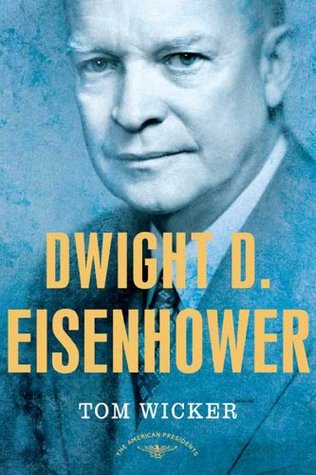Kindle Notes & Highlights
by
Tom Wicker
Read between
June 6 - June 9, 2019
His arm’s-length treatment of Richard Nixon and his myopic economic policy in 1959 were elements in the vice president’s defeat in 1960, against Eisenhower’s own and his party’s interests.
He spent much time at golf and bridge, usually in the company of the same group of wealthy businessmen, “achievers” like himself whom he admired and from whom he accepted expensive gifts that might well make a president today the target of a special prosecutor.
Even so admiring an observer as William Ewald wrote that Eisenhower always got someone else to do the dirty work—a confirmation of Beetle Smith’s “prat boy” recollection.2
Eisenhower also had a tart streak amounting sometimes to a lack of graciousness. The father figure in the White House could be privately acerbic and condescending even about men who had furthered his own career—FDR, for instance, had not needed to be so “indiscreet and crazy” at Yalta, Harry Truman was a “congenital liar,” and it was a question whether even the Republican Thomas E. Dewey, twice a presidential candidate, four times governor of New Yo...
This highlight has been truncated due to consecutive passage length restrictions.
In Washington, I once had waited in a long line to get into one of Eisenhower’s crowded news conferences; then, in an agony of rookie embarrassment, risen to ask a single question, which he’d answered affably, with no suggestion that he was talking to an impostor among familiar veterans.
I don’t remember the issues, or if there were any. What I do remember vividly is that when we were all airborne and relaxing again, only four of us in that tight little cabin, Dwight Eisenhower—merely sitting there chatting, occasionally grinning the famous grin, tossing back a handful of salted peanuts, his face effortlessly registering pleasure or inquiry or perplexity or regret or interest, whatever he was feeling—dominated every minute of the flight.
William E. Miller remarked, on that occasion, to Meade Alcorn: “With Ford, you won’t know he’s in the room until you see him. With Ike, you always knew he was in the room even before you saw him.”5
Ample testimony exists that Eisenhower as general and president always was willing to listen, to hear, and even sometimes heed dissent.
The incomparable press secretary Jim Hagerty thought Eisenhower’s greatest achievement was in “getting people to compromise divergent views without anyone’s surrender of principle.”6
Eisenhower, facing his own challenge, repeatedly prevented war—but lacked the ultimate greatness to make peace; the worst did not happen in his time, but neither did the best.
Eisenhower enforced the law in Little Rock, but never found it within himself to speak for equality of the races; he flattened Joe McCarthy with executive privilege, but impressed on Americans no moral outrage at McCarthy’s sins against decency; he ended one war and blocked others, but Guatemalans paid in blood and oppression for an ideology as ruthless in purpose as any foreign creed.
If Eisenhower reached greatness when he quelled panic after Sputnik and rejected gunboat diplomacy at Suez, it was as the man of character and steady vision that he had always been, rather than as a president of mysterious inspiration.


